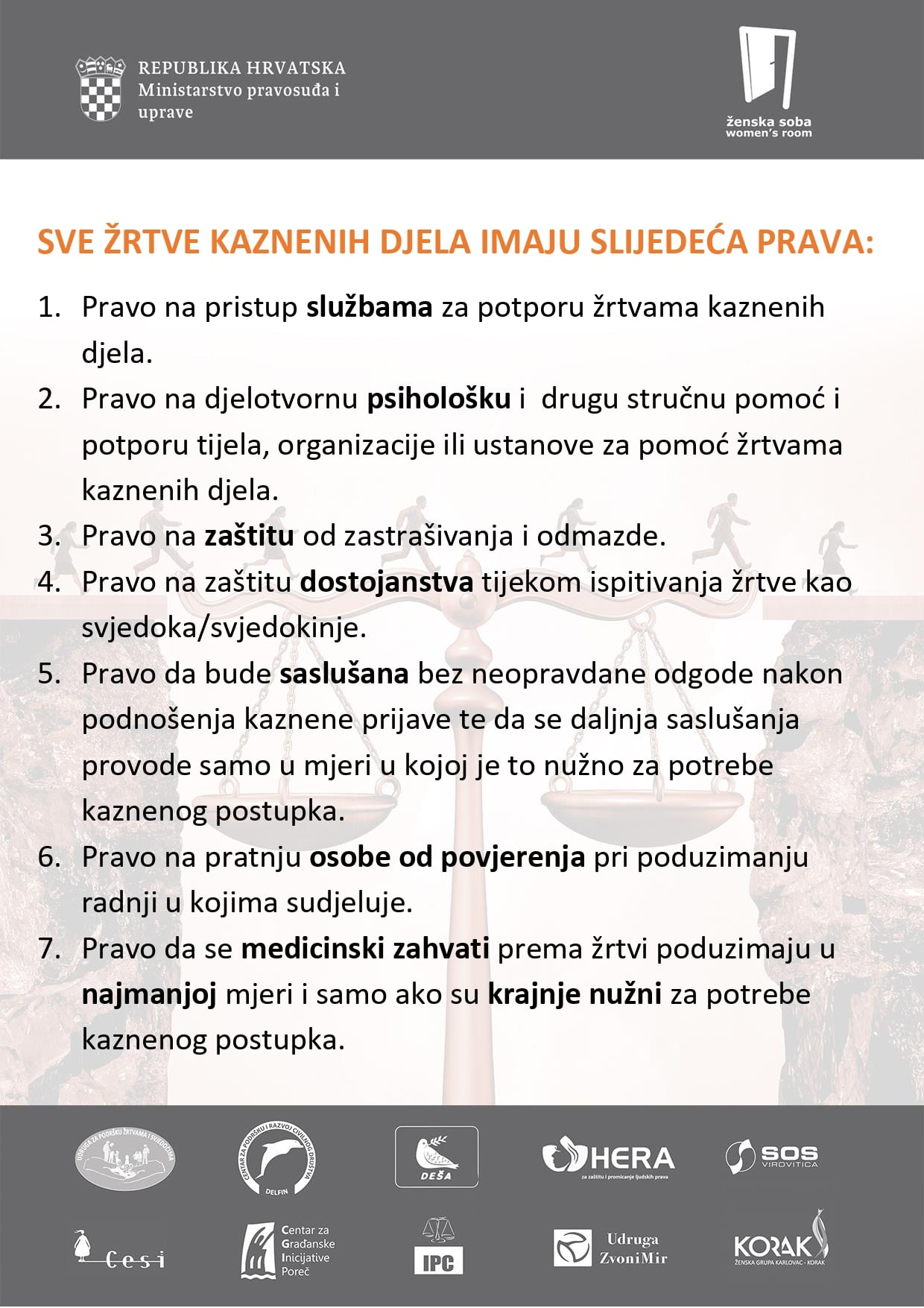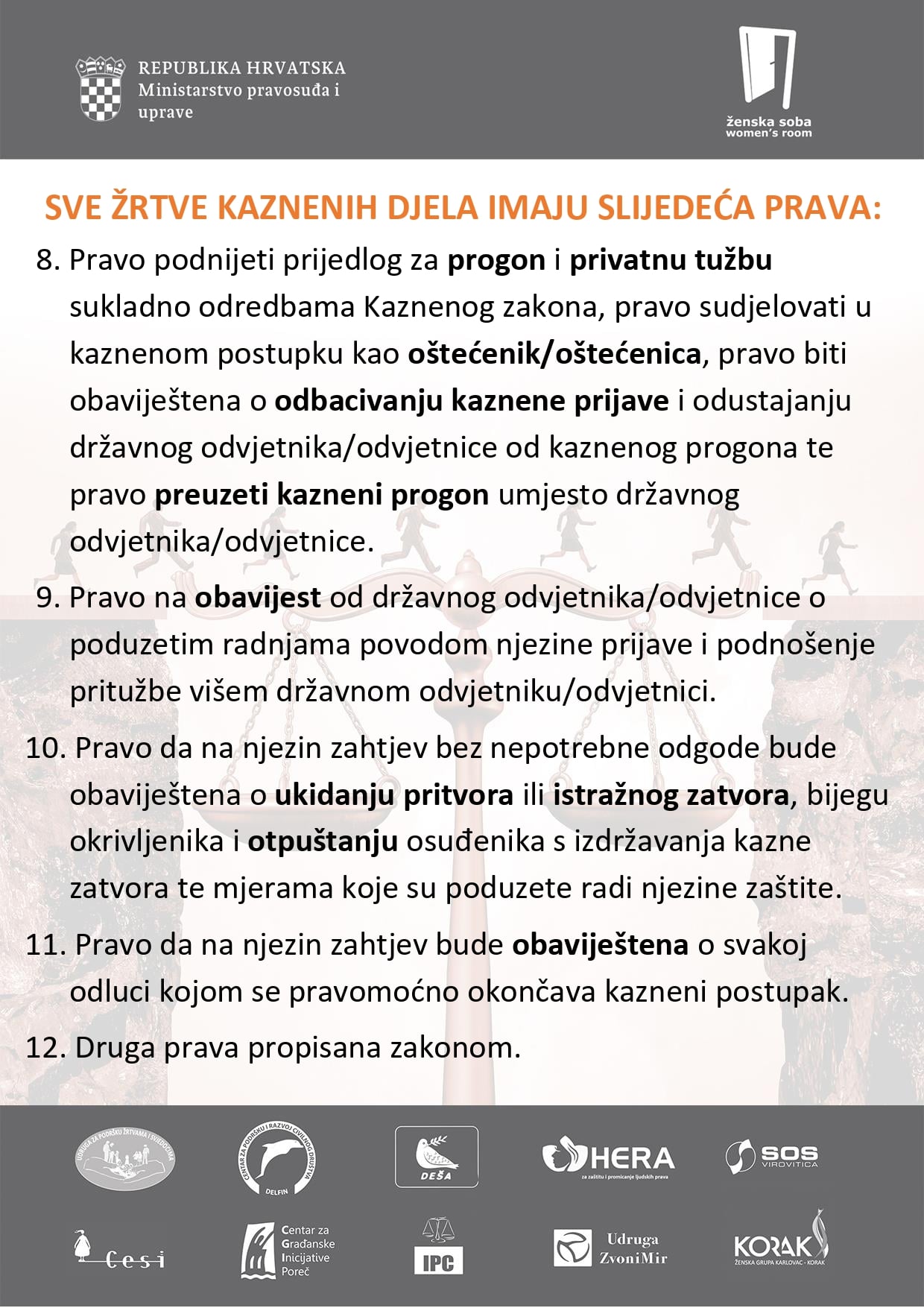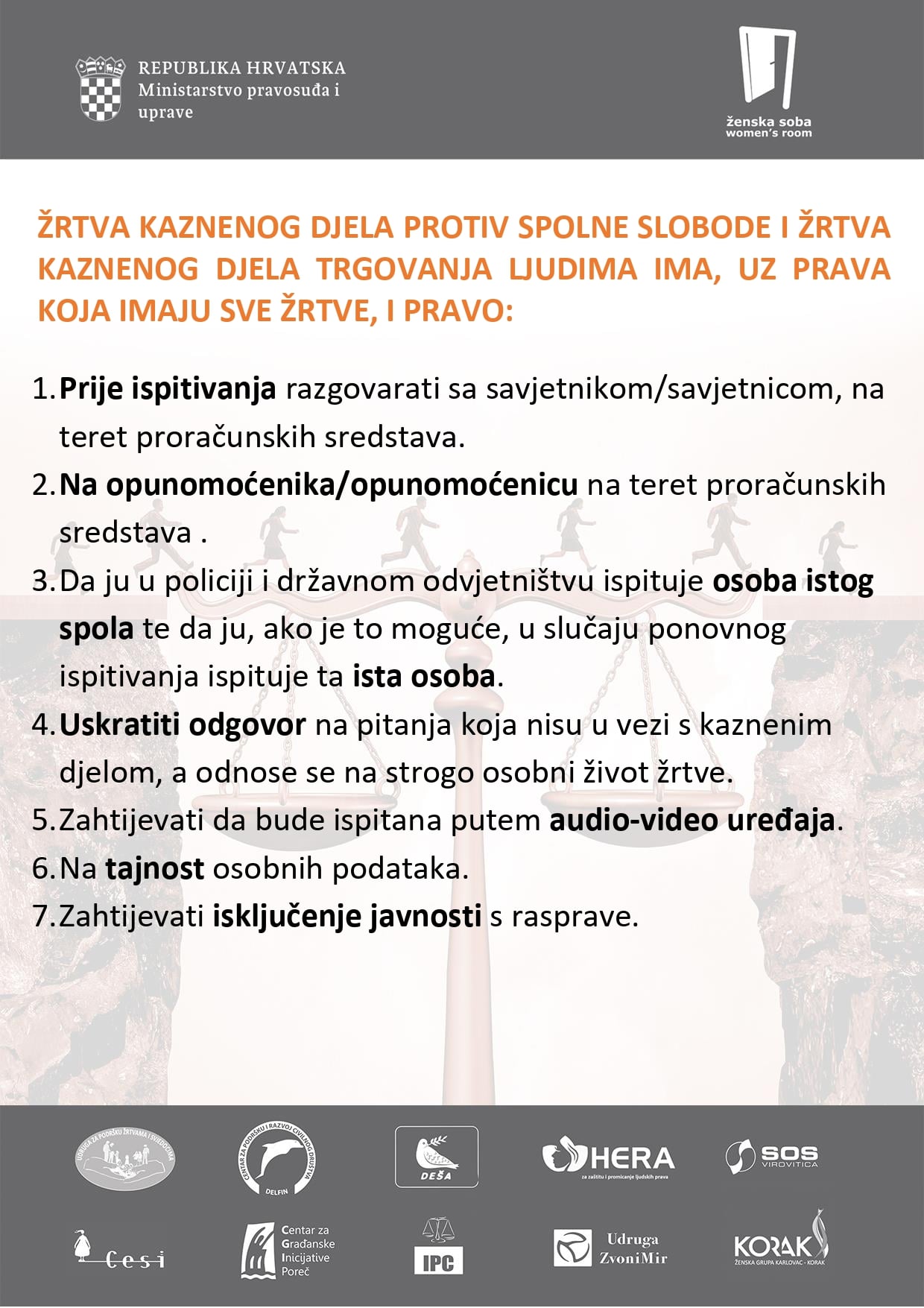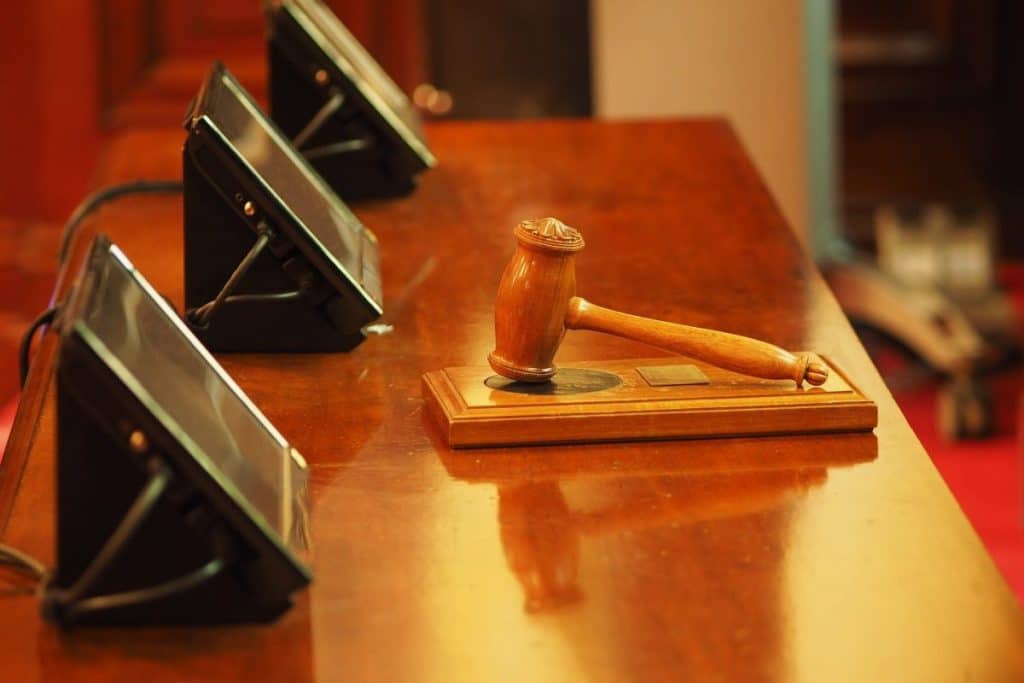In Croatia, about 65,000 criminal offenses are reported annually. No one is prepared to become a victim or a witness, especially when it comes to the most serious crimes, so support and help are extremely important. Besides, it is a legal right.
With this aim, the Network of support and cooperation program for victims and witnesses of criminal offenses was launched four years ago. Until then, only seven county courts had victim and witness support departments. While the other 13 counties had nothing, as the coordinator of the Network of Support and Cooperation and head of the legal team of the Women’s Room Anamaria Drožđan-Kranjčec explains for N1.

Through this program, he adds, in cooperation with ten civil society organizations, they have ensured that in 17 counties there is a place where victims and witnesses can turn to for help and support and find out what their rights are, and the plan is to cover all counties.
Emotional support, practical help and support, psychological and legal counseling, information on rights, and support by escorting to court, the police, the state attorney’s office, and social welfare centers are provided, he says.
From the beginning of the program until the end of last year, more than 19,700 different services were provided to more than 2,400 victims or witnesses of various criminal acts. The most reported victims are victims of domestic violence, sexual violence, intrusive behavior, and victims of threats and physical injuries.
However, they provide help to victims and witnesses of all crimes, and from next year, they will focus more on spreading information about other crimes so that people are encouraged and decide to seek help and support, emphasizes Drožđan-Kranjčec.
“We need to spread much more information on property crimes, on victims of robberies and thefts, criminal offenses in road traffic and attempted murder against life and limb. These are also serious criminal offenses and as a system we need to inform much more that these people also have rights”.
Who is a trustworthy person?
One of the rights that proves to be very useful for victims is a trusted person, which can be a family member, friend or other person with whom the victim feels safe.
“From all stages of the procedure – reporting a criminal offense to the police, going to the state attorney’s office, testifying in court – we can go with them as trusted persons. This right is legally prescribed and is being used more and more. A trusted person can be a parent, a friend, or someone from a civil society organization,” he explains.
 Source: Women’s room
Source: Women’s room
It lists some other rights, such as the right to interrogate the victim of criminal offenses against sexual freedom through an audio-video device in a separate room and to be interrogated by a person of the same sex.
Then the right to protection of dignity and retribution, certain victims have the right to monetary compensation according to the Law on monetary compensation to victims of criminal acts, so they are helped to obtain a representative at the expense of budget funds.
As he says, additional rights are prescribed for children, which, among other things, include the protection of personal data, exclusion from the public and the right to a representative. Victims of crimes against sexual freedom and human trafficking are also prescribed additional rights.
“We need to adjust the language and explain to people in a way that they understand”
People know very little about their rights, but, as he says, it is unrealistic to expect that a person who is a victim of a criminal act will know what to do and how to exercise their rights.
“It often happens that when, for example, when reporting to the police they are told that they have the right to access support services, they don’t understand and don’t know what that means,” says the coordinator of the Support and Cooperation Network.
He adds that the language should be adapted and explained to people in a way that they understand. The network, as he says, carries out public activities and a national campaign, and through various mechanisms such as information desks, flyers, TV spots, radio jingles and public actions, we tell people that there is a place where they can seek help if they experience a crime.
 Source: Female person
Source: Female person
He points out that all services within the framework of the work of the Support Network and the departments at the county courts are free for users and notes that the services are provided to everyone, both women and men.
“It is very often considered that civil society organizations are only for domestic violence, women and children. These are not such specialized organizations, but are general for both men and women for all criminal acts,” he says.
Services are not provided to children, but work is done with guardians, legal representatives and family members to provide children with the necessary information.
More and more people are calling and asking for help. “We have an increase in the number of users, and the needs are different. Some people only need general information, some need emotional support or more specific services,” he says.
The focus is not on the victim but on the procedure itself and the suspect
Although certain developments have been seen in recent years, court proceedings still take too long, he says.
“There is progress, but still not enough so that the victims are not further traumatized and victimized and that the entire procedure from the moment of the report to the finality of the verdict is not another aggravating circumstance in their lives. The entire procedure does not focus on the victim, but is more focused on the procedure itself as such and the suspect, so in relation to the victims, it takes a long time,” he claims.
 Source: Women’s room
Source: Women’s room
In Croatia, he adds, there is a lack of statistical data, data on the support system and for victims, the implementation of rights and legal provisions, so they launched the project “Civil society organizations as key actors in the standardization of the support system for victims and witnesses”, as part of which they conducted eight analyses. , and the results will be announced at the end of the year.
“We did special research with the victims, the courts, the police, the state attorney’s office, professional associates who are employed in the courts and with support services. We wanted to include all actors to see what stage our support system is in, how the victims see this implementation, how many of them are familiar with the rules, how many implement them, and the like,” he explains.
They have also created a website, Network of Support and Cooperation, which contains all the necessary information.
“We tried to create a page with a simple search engine by county where there are contact details of all organizations of the support network and a way for victims and witnesses to contact for help and find useful information”, said Anamaria, coordinator of the Support and Cooperation Network and head of the legal team of the Women’s Room Drozdjan-Kranjčec.
Track N1 via Android apps | iPhone/iPad and social networks Twitter | Facebook | Instagram.

